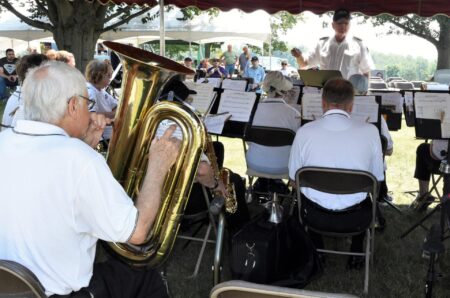When I was a child, I celebrated holidays like most other families. At Christmas, I opened presents under the tree. At Easter, I looked for pastel color eggs and ate lots of chocolate. Yes, the two biggest days of the year occupied my thoughts for many days before they arrived on the calendar.
But something didn’t feel right. Something still doesn’t feel right. We observe times and seasons like generations before us. Yet, in the still of the night or the meanderings of the day, we look back and wonder why we don’t feel at all satisfied that what we experienced was, in any way, meaningful – or true.
We don’t really question it. We simply move on and continue to associate ourselves – to live among the culture that we were born into – and exist in a vacuum. Our minds are preoccupied with the music and other forms of entertainment (television, movies and sports) of the age. Our souls, however, are barely nourished by the reality that there is something better out there for us – but we don’t know it, or we choose to ignore it.
Many brows are furrowed at the thought that what we believe (or think we know) is in line with what is infallible.
That Easter is a fertility ritual in the guise of the remembrance of the resurrection of Jesus Christ is, perhaps, one of the most mind-boggling deceptions in history. The movable feast, as it is called, hardly follows the timeline of the betrayal, death and resurrection of who Christians call the Savior of the world. Rather, it is in lockstep with the closest full moon of the spring equinox.
Who decided when Easter is observed? If, as the Christian world believes, Jesus was resurrected at a specific time in history, why do we play along with this “movable feast” and relent to the impulsive deference to Easter candy and pictures with the Easter bunny? After all, eggs are symbolic of fertility, and rabbits? Well, they multiply.
As they were, you were among them. But you are meant for more.
Behold Easter! The Easter bunny, Easter eggs, family gatherings, Easter egg hunts, the traditional ham (or lamb) dinner – replete with deviled eggs, potato salad and rolls for sandwiches!
All are fleeting.
The movable feast has become us. But the meaning is lost due to ignorance of our conformity to vain tradition and, over the progression of time our awareness of what is true is lost, until it is found in a moment of epiphany that, subsequently, results in a chasm with the society that we have embraced as our own.
We hold true what we believe is self-evident. What is self-evident is nothing more than repetitive teaching and indoctrination throughout the years that has held captive our thoughts, imaginations, convictions, motivations and actions.
It’s time to put away childish things – time to confront the illusions of the past.
The cost of not doing so will come in the form of a tragic conformity to the continuing demise of humanity and its acceptance of perpetual conflict, chaos and cataclysm that has defined history.
Our bizarre part of an existential Stockholm Syndrome makes possible future shock that will, ultimately, enslave the very ones who accept the doctrines of their appointed statesmen and public figures who determine the course of history.
Those who believe in the miracle of the resurrection and live by it know the meaning of the words, “As they are, you were among them.” They also know that the progression of time will not bring about true change – only more sorrow and devastation. This is evident by the words of the author of the Book of Revelation.
The more things change, the more they stay the same. Those who live in the comfort of prosperity are no different than those who live in poverty and need. All experience the same fate (death). The good of this world is an abomination to heaven. The cares of the world and the pride of life separate people from one another and cause contentions and wars.
It is a wise thing to live by the words of the preacher, who said: “Sorrow is better than laughter; for by a sad countenance the heart is made better.” Indeed, it is better to live in the house of sorrow than in the house of mirth. Sorrow, by this application, is not grief; it is an expression of humility.
There is no better time to take stock of our lives than in the spring of life. If we believe there is a God in heaven, then we should, in the words of the psalmist, “let our words be few.” Walk humbly and put off childish things. The aim of life is not to be happy; it is to live by the Golden Rule. It is not to accumulate wealth; it is to serve others.
History has proven that humanity is not proceeding on a continuous trajectory from good to better. Rather, it is proceeding ever so rapidly from order to disorder. It is wearing out like an old piece of clothing. Hope is a good thing. But, where we place our hope will determine where we end up when that common fate befalls us.






















